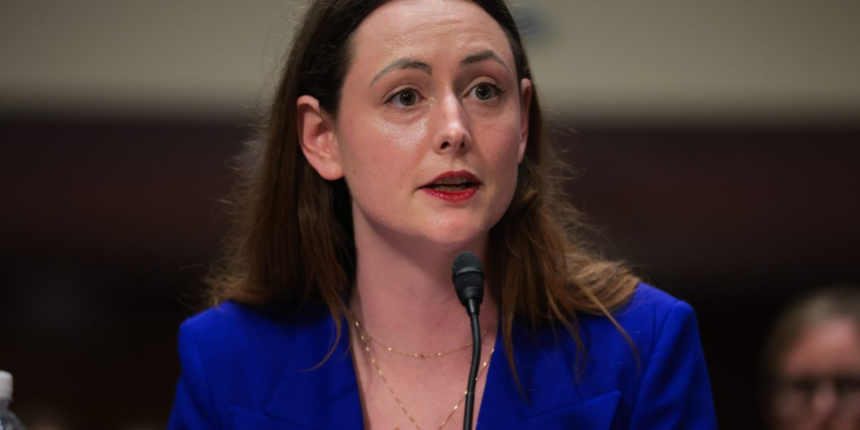When Rachel Cohen took a job as an associate at Skadden Arps in Chicago three years ago, she expected long hours, some tedious work, and extremely good pay. What she wasn’t expecting was to be thrust into the middle of a crisis involving her white shoe firm and the president of the United States.
Cohen could not have felt more strongly that the firm was taking a wrong turn. “I felt the firm was on the wrong side of history,” she says.
Cohen was brought into the firm as a financial specialist to work on large M&A transactions, and had been there a little under three years when Skadden made the announcement. Cohen said she first started noticing a slight shift in attitude at the firm after the president began taking aim at other major legal practices.
“When Trump started coming for law firms based on past representation, it was so outside the bounds of the normal and a clear intimidation technique, so I was shocked when there was no immediate response from the company; it struck me as strange,” she says. Skadden did not reply to Fortune’s request for comment.
With many associates, including herself, seeing the letter as a “clear intimidation tactic,” Cohen assumed at this point that Skadden would speak up and strike back, but that didn’t happen. “We knew nothing because the firm wouldn’t talk about it,” she says.
“They were going to just let me stomp my feet and tucker myself out like a toddler and then push me out at the end of the year once the media attention died off,” Cohen says. Skadden did not reply to Fortune’s repeated requests for comment.
Concerned that the firm was moving in a direction that violated her own ethics, Cohen quit Skadden on March 20. In doing so, she left behind a compensation package that she estimates would be more than $300,000 this year.
Cohen isn’t the only one to leave her job at a major law firm over its arrangements with the Trump administration.
“We go to big firms like Skadden because we think that we’re going to get the best training opportunities, the best career development,” Frye, student and co-president of the Georgetown Energy Law Group, tells Fortune. “But now, I can’t look people in my group in the eye and tell them that they’re going to get the best training opportunities at a firm that isn’t even willing to litigate on behalf of its own constitutional rights.”
As for Cohen, she’s unsure of her future, but says it will likely be outside of the legal profession. She says she feels what Skadden is doing is much larger than just promising free legal work to the president, adding the company’s actions have led her to question the ethics of management and reduced her faith in the entire legal system.
“I don’t know if there’s a law after this,” says Cohen. “It seems like the country is moving towards kangaroo courts and I’m certainly not going to commit myself to the practice of law as a full-time job until I see how things unfold.”









